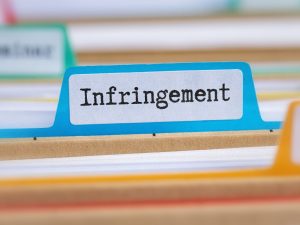 Himalaya Wellness, a multinational personal care and pharmaceutical company, secured a decree of permanent injunction through a suit filed in the Delhi High Court for trademark infringement against Abony Healthcare Ltd. for using Himalaya’s registered trademarks and trade dress – LIV.52.
Himalaya Wellness, a multinational personal care and pharmaceutical company, secured a decree of permanent injunction through a suit filed in the Delhi High Court for trademark infringement against Abony Healthcare Ltd. for using Himalaya’s registered trademarks and trade dress – LIV.52.
Brief Facts
The plaintiff, holder of the registered trademark “LIV.52” since July 10, 1957, and various LIV.52 formative marks, filed a suit alleging infringement by the defendant. The plaintiff emphasised their accrued goodwill and reputation associated with the “LIV.52” marks over the years and detailed the sales turnover for products bearing these marks from 2010-11 to 2021-22, with earnings of Rs. 209.02 crores in the latter year alone. Substantial amounts were also invested in advertising and promoting these trademarks. The plaintiff argued that the continuous usage of “LIV.52” marks had made them source identifiers. The defendant was using the mark “LIV.55 DS” and “LIV 999” for a similar liver tonic. Moreover, the defendant’s packaging for its products bore a similar trade dress to that of the plaintiff’s, including the thin orange border at the top, the central white strip, and the green lower half of the package. The lettering was also similar, in white with similar fonts.
Contentions/Arguments by the Parties
The contentions put forward by the plaintiff were the usage of the word “LIV.55 DS” by the defendant for a similar liver tonic using an identical trade dress, which was deceptively similar to the plaintiff’s registered mark “LIV.52” and its trade dress. The plaintiff also argued that the defendant’s use of “LIV.999” for liver tonics was an unwarranted use of the combination “LIV” and a number, which will cause confusion and false association with “LIV.52” and violate the plaintiff’s marks.
However, the defendant argued that these resemblances were accidental and unconscious because the medications were created to address different health conditions during the COVID-19 pandemic. The defendant added that the products were only displayed on e-commerce platforms and had not yet been sold.
Analysis and Observation by the Court
The Court observed that upon a cursory examination of the trade dress employed by both parties, it was evident that the defendant purposefully copied the trade dress used by the plaintiff, including the unique colour combination. It was also noted that the usage of lettering and numbering in the packages showcased blatant similarity, thus showing the presence of a clear, deceptive resemblance. It also opined that the inclusion of the company name by the defendant in its packaging does not mitigate the possibility of confusion among consumers of average intelligence, especially when the marks in question were being used for liver tonics in similar trade dresses. The Court, scrutinising the defendant, also questioned the justification for the use of the term “LIV” with numbers such as “999” in “LIV 999”.
The Court also stated that it is a standard practice in the pharmaceutical industry to use different suffixes for products with different strengths and that it is a customary practice to incorporate deliberate dissimilarity in packaging to prevent confusion. Relying upon Himalaya Drug Company v. S.B.L. Ltd., 1996 SCC OnLine Del 464, the Court held that the plaintiffs were entitled to the permanent injunction for the marks “LIV.55” and “LIV.999,” both in respect of mark and trade dress used by the defendant. The Court additionally stated that, as far as the infringement was concerned, it made no difference if the defendant’s products were sold or not, and an actual sale is not necessary for infringement to occur. Infringement under Section 29 of the Trade Marks Act is ipso facto committed if the defendant’s mark is deceptively similar to the plaintiff’s and there is a risk of confusion. The Court applied the ‘triple identity test’ and said, ‘Section 29(2)(b) clearly applies where the competing marks are similar, used for similar or identical products and where the similarity between the marks and the similarity or identity of the product or services for which the marks are used, is likely to result in confusion or in the public or the public to believe an association between the marks‘. Citing relevant cases such as Sumeet Research and Holdings Pvt. Ltd. v. Sipra Appliances, Living Media India Limited v. Vijayan Madhavan Praveen and Ahmed Oomerbhoy v. Gautam Tank, the Court noted that the marks “LIV.55” and “LIV.999” are deceptively similar to the mark “LIV.52” and both are used for liver tonic. The trade dress of the defendant’s mark is similar to the plaintiff’s mark, and the manner in which “LIV.52” and “LIV.55” are written are also deceptively similar to each other. The Court stated that the congruence of similarity or identity of marks, identity of products or services and availability of the products or services through the same outlets constituted infringement.
Furthermore, the Court also took into consideration the nature of the products involved, which were Ayurvedic preparations and that since these products do not require any kind of prescriptions and are readily available over the counter, the Court emphasised the likelihood of unwary consumers purchasing the defendant’s “LIV.55”, believing it to be the plaintiff’s “LIV.52” or another product of the plaintiffs, and this extended to “LIV.999” as well.
The Delhi HC ruled in favour of Himalaya Wellness and issued a permanent injunction against the defendants, restraining the use of the impugned marks “LIV.55”, “LIVA 55”, or “LIV.999” or any other mark or trade dress which is deceptively similar to that of plaintiff for liver tonics or any other pharmaceutical preparation. The plaintiff was entitled to actual costs since no prayer for damages was pressed.
Authhors: Manisha Singh and Surabhi Oberai
First Published by: Lexology Here



